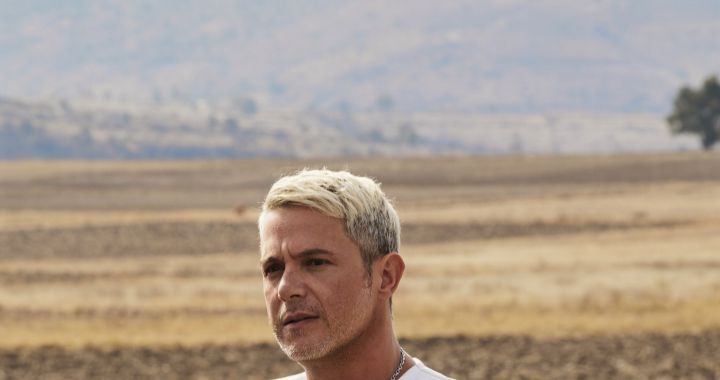In a constant exercise of renewal, Alexander Sanz he always tries not to repeat patterns, to move away from what he has already done to find new formulas with which to surprise and captivate his audience. Last March, the Madrid artist ushered in a new era with roadrunneran urban and very lively theme with Venezuelan Danny Ocean. “I really like the symbol of the Road Runner: the one who chooses his path, bets on it and then nothing can stop him”, explains Sanz in this interview with the newspaper. The world about their first single. This song was produced by Alizwhich already gives us clues to understand where the new sound of the Madrid artist is heading.
On this new musical horizon and on his latest releases, Volé y Cuándo, the creator of Sanz He explained the meaning they have in this phase of his life. “I broke up with myself many times, I broke up with this guy who always puts on a good face and is always right and sometimes makes me sick. Stolen is a way of explaining this need to me.”
take another step down the street
Like many great successful artists, Alejandro Sanz has made his home in Miami for years, the American city that over the past two decades has become the epicenter of Latin music. The perfect place to network with other artists or do sessions in the best recording studios, however, it can also take you a bit away from the reality of the streets. Sanz explains on this subject: “It is a risk of which I was aware and which I tried to avoid by relying on a few friends for many years (…) For that I try to take back certain customs: having the same place in the city to have a coffee from time to time, going out for dinner, walking in the street more…”, he says The world.
New musical reality
Virtually all artists have adapted to the new dynamics of the music industry. The accelerated consumption brought to us by the Internet and new technologies has made itself felt above all in recent years and Alejandro Sanz reflects on this way of working and consuming music: “The ritual of music that we knew no longer exists and I’m so sorry about that,” said, though optimistic for the present, “I also see a lot of this whole change. Before, the music editing process was like locking yourself up for seven months to record 10 songs of which, if it went very well, there would be three that would be heard at all. The other seven were a wasted effort. I think about it now and I don’t see much of it. Now I record songs for the express purpose of being heard. And when I got 10, I put them together on a record. That feels like progress to me, really.”

